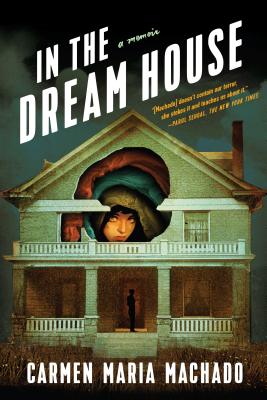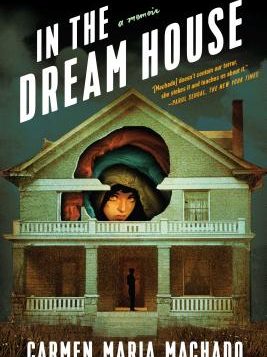 In the Dream House: A Memoir
In the Dream House: A Memoir
by Carmen Maria Machado
Graywolf Press. 272 pages, $26.
EVERYONE makes ill-considered decisions, and Carmen Maria Machado is no exception. In this picaresque memoir, she raises some perplexing questions: What is deviant pleasure? What happens when it gets you thrown into jail? Do you fight back, flee, kill, or forgive? Her episodic love story raises some tough challenges that cut like a whiplash across race, class, gender, and religion.
The writer’s unconventional style has been touted by critics as “genre-crushing,” “urgently true,” and “unflinching.” Yet after finishing the book, I found myself questioning these accolades. The author is a queer woman of Cuban descent. Her survivor’s tale follows an impressive collection of short stories, 2017’s Her Body and Other Parties, which The New York Times cited as among the books that are shaping 21st-century fiction. Nonetheless, her latest book was rejected by over thirty publishers before Graywolf took it on. It is a fragmented narrative written many years after the end of a failed affair.
In a recent interview in Poets & Writers, Machado explains that writing the book was difficult because she hadn’t been “taught how to talk about” what happened to her. Who has? A love affair gone sour is one of the oldest stories ever told—far older than, say, Tolstoy’s Anna Karenina. The pursuit of true love is always a life-changing event.
What makes this memoir special to some reviewers is that it is a creative nonfiction memoir that involves two women. In it, the narrator recounts her infatuation as a graduate student with an unnamed woman she meets at the Iowa Writer’s Workshop. In the Dream House is a phantasmagoria of Machado’s feelings about an abusive relationship with a charming, unstable, upper-class woman years after it ended.
The memoir reads like an adolescent girl’s diary: a series of lightning flashes that zigzag across the pages. These range from ecstatic joy to screaming pain as she opens her writing wings and flies through the darkness of both physical and verbal abuse, surviving multiple dangers on her way to rainbow-tinted skies somewhere in the future.
Machado’s creation of literary and cinematic themes—which can be seen as attempts to make sense of, and distance herself from, queer domestic violence—makes for a shattered narrative with no discernible arc. Indeed the book is comprised of choppy, one-to-five-page miniature chapters. Perhaps the intention is to show that these characters are com- plicated, vacillating between sadistic and shallow emotions one minute, intense and passionate ones the next. The salacious bits with which the author titillates the reader feel superficial and distracting.
In this shattered mirror of a memoir, Machado relentlessly pursues the game of writing. At times her words hit readers in the face like a blast of arctic air. For example, she cites Alain Guiraudie’s film Stranger by the Lake and relates how Franck witnesses an older man named Michael murder his boyfriend. Shortly after that, the young man begins an affair with Michael. In this chapter, she argues for the authenticity of queer characters no matter how evil they are. “Let them have agency, and then let them go.”
Machado builds her dream house incident by incident until it becomes a virtual haunted house inhabited by words that tell you that all hell is about to break loose. Machado slaps her sentences down on the page in jagged snippets and fragments, showing how her shocking denial of the growing reality before her led to paralysis. “Dream House as the World,” which describes how the abuser isolates, confines, and gaslights the abused, is one of the most chilling chapters in this book.
The second half of this memoir splinters into a scattershot of notes from various locations, in different moods and time frames. After reading this memoir in light of all the critical buzz, I found myself longing for something less coldly sermonizing and more emotionally absorbing.
Cassandra Langer is the author ofRomaine Brooks: A Life.







Discussion1 Comment
I believe we know each other from the misty past…. think of the Mishkins, 1957, we both resided in their abode. Not to our liking nor our ability to change.
Geoff Gordon.